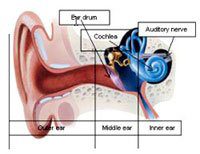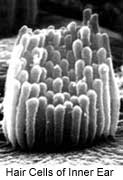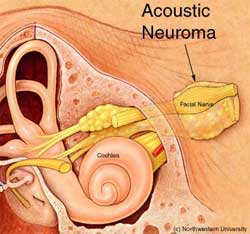By Barry Keate
Barry Keate, has lived with tinnitus over 40 years and has published 150+ research articles on numerous aspects of tinnitus. He is an expert on the condition and a well-known advocate for those with tinnitus.
Tinnitus is a condition characterized by hearing sounds in the ears or head that do not originate from an outside source. The sounds can vary from ringing, buzzing or escaping steam to chirping and thumping. Any sound that does not come from an outside source is defined as tinnitus.
There is some confusion as to the correct pronunciation of the word tinnitus. Many people pronounce it tin-night’-us while others, including most doctors, prefer to say tin’-i-tus. Both pronunciations are considered correct and many dictionaries list it either way. However, the Oxford English Dictionary, which is renowned for delving into the history of words, describes the first usage from old German as tin-night’-us.
Tinnitus affects over 50 million Americans to varying degrees. Fortunately, most people do not have a serious problem with it. However, over 15 million people in the US visit an Ear, Nose and Throat physician (Otolaryngologist) annually seeking help for their condition. In many cases they are told there is nothing that can be done. In some cases, an organic cause is found that has a treatment option. Here we will attempt to explain the tinnitus causes and available tinnitus treatment options.
After brief descriptions there are links to deeper discussions of these issues.
Sensorineural Hearing Loss (SNHL)
Sensorineural hearing loss occurs when there is damage to the cochlea or to the nerve pathways from the inner ear to the auditory cortex in the brain. There are many causes of SNHL but the most prevalent two are age-related hearing loss and excessive noise exposure. According to the American Tinnitus Association, 70% of all tinnitus is caused by noise exposure.
Age-related hearing loss occurs as we age and is called presbycusis. The aging process, coupled with nutritional deficiencies, environmental factors and individual differences, gradually degrades the hearing function and our ears don’t respond as well as when we were young. As hearing thresholds decrease, tinnitus is often the result.

Loud noise damages the hair cells inside the cochlea that are responsible for sensing sound vibration and converting it to an electric signal. Damage from noise exposure is cumulative; it can come from a single explosive incident or it can build up over time from a number of less traumatic but still damaging episodes. SNHL cannot be treated medically or surgically. It is considered permanent hearing loss.
Glutamate is a neurotransmitter used by the ear to transmit signals across the synapse leading to the brain. It is produced by the hair cells of the inner ear when converting vibrational sound into electrical signals. When the hair cells are damaged, they produce excess glutamate, which floods the neuro-receptors in the auditory nerve and brain. Excess glutamate overexcites the receptors and causes them to fire continuously until they become chemically depleted and eventually die. This process is known as glutamate neurotoxicity and is responsible for many neurological diseases such as Parkinson’s disease, Alzheimer’s disease, ALS, epilepsy and tinnitus. Tinnitus caused by glutamate toxicity is called Cochlear-Synaptic Tinnitus.
The frequency of a person’s tinnitus is typically found at the lower end of the range of hearing loss. That is, if someone has hearing loss in the 4,000 to 8,000 KHz range, tinnitus is frequently around 4,000 KHz. It is analogous to the “Phantom Limb Syndrome” which occurs when people lose a limb in an accident yet still feel pain in extremities that are no longer there. In this case, we hear noise in a frequency that experiences hearing loss. Most hearing loss from noise exposure is in the higher frequencies and high frequency tinnitus is very common.
Ototoxic Medications
Over 300 prescription medications can cause tinnitus or make it worse (as well as some over-the-counter products), How much harm these medications do to our hearing depends on the individual drug and how long it is taken. If an individual discontinues taking an ototoxic medication shortly after tinnitus becomes noticeable, generally the cochlea will not suffer permanent damage. If it is continued, however, permanent hearing loss and tinnitus is the result.
It is very important for people taking prescription medications to be aware of the potential side effects of these drugs. The pharmaceutical industry has a very large database of possible side effects and most of this is on the Internet. In all too many cases, doctors are not as aware of side effects as they need to be. It is up to us to be knowledgeable about what we ingest.
Somatic Tinnitus
Somatic tinnitus occurs when sensory signals from the body cross talk with auditory signals from the cochlea. This occurs in an area of the brainstem called the Dorsal Cochlear Nucleus (DCN). This is the first relay point, or synapse, auditory signals cross on their way to the auditory cortex for further processing. It is also the synapse for sensory signals from the body traveling to other brain areas.
If the DCN is damaged, through noise exposure, injury such as whiplash or blow to the head, TMJ dysfunction, or muscle spasm, sensory signals become mixed with auditory signals and influence tinnitus, usually for the worse. People with somatic tinnitus are frequently able to change their tinnitus frequency and intensity by changing head, neck, jaw or body position.
8 Treatments for Tinnitus Caused by Hearing Loss
While there is no medical or surgical treatment for tinnitus caused by hearing loss, there are many approaches to managing the condition:
1 – Maskers & Hearing Aids
Many people try hearing aids and/or tinnitus maskers. Hearing aids are most effective for those with mid-range hearing loss and tinnitus. They increase sound levels in the middle range and help cover the sound of the tinnitus. Tinnitus maskers are hearing aid-like devices that generate a sound, which “masks” the tinnitus noise. Tinnitus maskers are more effective for high frequency hearing loss and tinnitus.
2 – Tinnitus Retraining Therapy (TRT)
Tinnitus Retraining Therapy or TRT attempts to train the brain to ignore the sounds of tinnitus. This has been shown to be effective but is quite expensive ($3-$5,000), very time consuming and can take from 12 to 24 months to show results.
3 – Neuromonics
Neuromonics is considered to be an improvement on Tinnitus Retraining Therapy. It is about the same cost as TRT but results may be achieved in 6-8 months instead of 12-24 months. In the first independent study of Neuromonics, slightly less than half the participants had improvement averaging 40%.
4 – Medication
Some medications are helpful. Many doctors prescribe a small amount of a benzodiazepine anti-anxiety medication such as Xanax or Klonopin for patients who are extremely bothered. These medications help calm the patient and lower sounds somewhat but come with significant side effects and are addicting.
Another medication with promise is the anti-convulsant Neurontin. Clinical studies have shown that Neurontin activates GABA in the brain. GABA is a calming neurotransmitter and balances the excitatory properties of excess glutamate. Studies using a varying dosage of Neurontin coupled with a low dose of Klonopin have shown significant results in lowering tinnitus sound levels. This medication however can induce some serious psychological side effects such as aggressiveness, hostility, thought disorder and concentration problems.
Antidepressants are prescribed by many doctors for patients with tinnitus. The rationale is that tinnitus depresses the patients; therefore an antidepressant will make them feel better. If they feel better, they won’t obsess with the tinnitus as much. There is something to be said for this approach; however people should embark on this course with caution. Many of the newer, SSRI antidepressants (Prozac, Zoloft, etc.) list tinnitus as a frequent side effect. The medication can cause tinnitus to worsen. The older, tricyclic antidepressants, such as Remeron, do not do this as frequently as SSRI antidepressants and are as effective as SSRI’s in most cases.
5 – Biofeedback & Hypnotherapy
Biofeedback and hypnotherapy can both have a positive impact on tinnitus. In different ways, they are tools to learn to completely relax, which can significantly lower tinnitus sound levels. Acupuncture can also help in many cases.
Biofeedback has been shown to be helpful for those with somatic tinnitus as well. It can reduce the amount of cross talk between sensory and auditory inputs.
6 – Diet & Exercise
Adhering to a good diet and regular, vigorous exercise is necessary for those suffering from tinnitus. Many food additives and sugar substitutes are neurodegenerative and will make tinnitus worse. Especially onerous are the flavor enhancer MSG and the sugar substitute Aspartame. These chemicals should be rigorously avoided by anyone with tinnitus. It is extremely important to consume a diet of whole foods rather than fast foods and pre-packaged or processed foods. Exercise increases blood circulation, helping us eliminate toxins from the body. It also calms the nerves and improves the immune system.
7 – Electrical Stimulation
Electrical stimulation shows great promise for tinnitus. Many years ago researchers inserted electrical probes into the brains of Parkinson’s disease patients to reduce symptoms. They found that those with tinnitus had lower sound levels, sometimes dramatically lowered. Since then they have attempted to mimic the procedure from outside the head. Repetitive Transcranial Magnetic Stimulation (rTMS) uses powerful magnets outside the skull to induce an electrical current in the brain. There has been marked success using this procedure in reducing tinnitus for some people.
Cochlear implants are another form of electrical stimulation. In profoundly deaf people, the cochlea is removed and replaced with an electronic device that picks up external sounds and transmits them to the brain as electrical signals. This technology is still fairly new and outside sounds, especially speech, are not as clear. However, deaf people with severe tinnitus have noted a dramatic improvement in their tinnitus.
More recently, Michael Seidman, MD has initiated a series of experiments where he implants electrodes into the brains of severely affected tinnitus patients. This work is in its infancy but results are promising and research will continue.
8 – Arches Tinnitus Formula
The ingredients used in Arches Tinnitus Formula™ (Ginkgo biloba extract, zinc picolinate and deodorized garlic) have been shown in numerous clinical studies to reduce tinnitus versus a placebo. Ginkgo biloba extract is the single most studied herb in common use today. Its properties include increased circulation in the head, eyes and ears, powerful antioxidant activity and it is neuro-protective and a glutamate antagonist. Zinc is a strong antioxidant within the ear. The largest concentration of zinc is in the cochlea and zinc deficiency is a known cause of tinnitus. Garlic also helps increase circulation and reduces plaque build-up, which leads to atherosclerosis, stroke and reduced blood flow.
Dr. Michael Seidman, who endorses Arches Tinnitus Formula™, states that his clinical experience is that approximately half of his patients have a significant reduction in their tinnitus from the use of the formula. They elect to continue using it and require no further treatment from him.
Although hearing loss is the single greatest cause of tinnitus, it is not the only one.
Below is a discussion of other causes of tinnitus:
1 – Inflammation and Infection
The term “otitis media” refers to inflammation of the middle ear. This is often caused by infection and is very common in young children. Allergies can also cause inflammation of the middle ear. Acute otitis media is characterized by excess fluid in the middle ear, which can cause swelling, redness and pain. Inflammation causes blockage of the eustachian tubes, which prevents fluids from draining.
Inflammation and excess fluid in the middle ear can lead to tinnitus, which is generally resolved once the inflammation is controlled. A doctor will examine the patient and treat the condition depending on whether it is a viral or bacteriological infection or allergic response.
Occasionally, inflammation and excess fluid remain after treatment and the patient may be bothered by discomfort and tinnitus. The typical treatment for this condition consists of a steroid-based nasal spray to reduce inflammation and an antihistamine, where appropriate. This resolves the condition for most people. For those in whom it is not effective it becomes necessary to insert a catheter and drain the excess fluid.
2 – Temporomandibular Joint Dysfunction (TMJ)
TMJ dysfunction occurs when there is a misalignment of the jawbone where it hinges into the skull. This is usually the result of accidents, a blow to the head or whiplash. This misalignment puts strain on the temporomandibular joint, which often causes tinnitus. It can take months or years before the original injury degrades to the point of causing tinnitus.
Treatment commonly employs painless procedures, which help stimulate muscles and joints to function normally, decrease spasm, remove toxic waste products, and increase blood flow and nutrition to the affected areas. Therapies such as low current electrical stimulation to reduce muscle spasm and stimulate healing, ultrasound for deep tissue heating, hydrocollator for moist heat, and cryotherapy (cold therapy) are used with a variety of removable orthopedic appliances aimed to correct the position of the condoyle, or “ball”, of the lower jaw within its socket. In addition, joint mobilization procedures, physical manipulation, and other procedures might be employed.
Between 80-90% of TMJ patients report significant decrease or complete resolution of tinnitus after treatment.
TMJ specialists are trained in the dental profession. They have a professional association called the American Academy of Cranio-Facial Pain. Specialists in this field are listed by location on their website at www.aacfp.org.
3 – Otosclerosis
In otosclerosis, the consistency of the sound conducting bones of the middle ear changes from hard mineralized bone to spongy bone tissue. This causes a loss of conduction of sound to the inner ear.
Otosclerosis is a common cause of hearing impairment and is hereditary, although it can skip generations. The primary symptom of otosclerosis is a slowly progressive hearing loss beginning anytime between the age of 15 and 45, although it usually starts around age 20. Approximately three quarters of patients with otosclerosis will also develop tinnitus in the affected ear. In 25-30% of patients, balance problems may also occur, including unsteadiness, dizziness, vertigo, or other sensations of motion.
There is no known cure for otosclerosis. However, oral fluoride supplementation may slow or halt disease progression. Dizziness associated with active otosclerosis will usually respond within two weeks of oral fluoride therapy.
There is also a surgery, called stapedectomy. The procedure is usually performed under local anesthesia and can be carried out on an outpatient basis. Over 80% of these operations successfully improve or restore complete hearing to the patient. During this procedure, the surgeon removes the soft bone tissue and replaces it with a Teflon or metal prosthesis that allows sound vibrations to again pass from the eardrum to the inner ear. The hearing improvement obtained is usually permanent.
4 – Pulsatile Tinnitus
Problems with blood circulation are also known as vascular problems. They can be caused by plaque build-up on arterial walls, twisted arteries, vascular lesions and others. Sometimes an artery can lie too close to the cochlea. In many cases these problems result in pulsatile tinnitus, a condition where a person hears their heartbeat in the ears. This is a different problem than most tinnitus where the person hears continuous sounds.
Pulsatile tinnitus due to vascular problems can often be resolved through medication or surgery. A vascular specialist can diagnose the problem and propose treatment methods.
5 – Acoustic Neuroma
Acoustic neuroma are rare, non-malignant growths that occur on the eighth cranial nerve leading from the brain to the inner ear. They are very slow growing, developing over many years, and are not cancerous. They do not spread but continue growing from the point where they begun. When they occur, they grow on the vestibular nerve where it passes through the auditory canal. Eventually they will grow to the point where they press against the brain and can become life threatening.
the inner ear. They are very slow growing, developing over many years, and are not cancerous. They do not spread but continue growing from the point where they begun. When they occur, they grow on the vestibular nerve where it passes through the auditory canal. Eventually they will grow to the point where they press against the brain and can become life threatening.
Because these are slow growing tumors, observation is recommended for elderly patients to determine rate of growth. For others, the tumors must be removed. They can be removed through surgery or, in the case of smaller tumors, radiation. Permanent hearing loss and tinnitus results in a significant percentage of patients who have these tumors removed.
6 – Meniere’s Disease
The underlying cause of Meniere’s disease is unknown. What occurs is a fluid build-up in the semicircular canals inside the ear, which helps us keep our balance. This fluid build-up increases pressure on vestibular hair cells. The result is the brain is sent signals that tell it the body is moving or spinning when it is not.
Meniere’s disease causes a feeling of fullness in the ears, severe dizziness and vertigo and hearing loss. If it continues for any length of time, the hearing loss becomes permanent even though the Meniere’s disease may be treated and be controlled.
7 – Other Disease Conditions
A number of disease conditions can also cause tinnitus. Among the more common of these is thyroid dysfunction and Lyme disease. Fortunately, successful treatment of these conditions usually results in resolution of tinnitus.
Dysfunction of the thyroid gland leads to numerous problems including lowered energy levels, increased sensitivity to pain, weight gain, depression and tinnitus. Tinnitus is a very common effect of thyroid dysfunction.
Lyme disease is an infectious disease caused by bacteria and carried by ticks that feed on infected mice and deer. Left untreated, as many as 48% of patients with late-stage Lyme disease may develop hyperacusis, tinnitus and/or sensorineural hearing loss.
